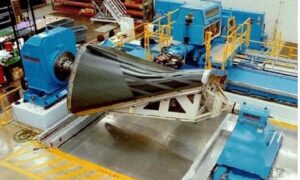In recent decades, new digital technologies have burst into society, driving a dynamic of intense and accelerated change in the behavior patterns of individuals, as well as the way in which they relate to each other.
This digital disruption, driven to a large extent by the phenomenon of globalization, is modifying aspects as diverse as: business organization and management models, production processes, distribution of goods and services, lifestyle habits, social relations, consumption patterns, the dissemination of knowledge, among others.
Dizzying development of the digital world
The dizzying development of digital infrastructures, together with increasingly agile and simple access and interconnection to the network, are promoting the widespread use of new digital technologies by citizens, companies and institutions.
This circumstance is favoring the configuration of a digital ecosystem that is pushing hard towards the transformation of traditional business models and the growth pattern of economies.
Digital disruption, therefore, is today a source of change and transformation of all social structures and in turn stands as a lever that drives the development and economic growth of society, while favoring gains in terms of competitiveness and business efficiency.
Economic impact of new digital technologies
- Economic growth: Investment in new digital technologies boosts economic growth through the production of goods and services in the ICT sector (supply side) and the positive influence that investment and the effective use of new technologies have on all productive sectors (demand side).
- Labour market: Digitalization creates new opportunities and challenges. On the one hand, it requires the development of new job skills and abilities. On the other hand, it drives job growth, not only in the ICT sector, but across the economy thanks to business innovation.
Digital Transformation: Main Challenges and Opportunities
The available evidence indicates that investment in new digital technologies is now a lever that drives economic growth.
The impact that new technologies have on the growth of the economy comes from two different sources: the production of goods and services in the ICT sector (supply side) and the positive influence that investment and the effective use of new technologies have on all productive sectors
Various studies have shown that an increase in investment in ICT by companies translates into an increase in economic growth, both at the aggregate and sectoral levels.
In fact, the ICT sector has been found to be one of the main drivers of economic growth in most developed countries over the past few decades.
New technologies incorporated into production processes
On the other hand, the incorporation of new digital technologies into the production processes of companies in traditional sectors has also contributed to improving efficiency and productivity, which has resulted in an increase in their competitiveness and, therefore, in greater economic growth.
New digital technologies and the labour market
The process of digitalization of the economy is generating new opportunities and challenges that the labor market must face. On the one hand, the incorporation of new technologies in turn requires the development of new job skills and abilities that allow potential productivity gains to be captured.
In this sense, it is necessary for education and vocational training systems to adapt to the new demands of the labour market, focusing on the development of digital competences and soft skills such as creativity, problem-solving skills, teamwork and effective communication.
Influence of digital transformation in the labour market
On the other hand, digital transformation is a lever that drives employment growth, not only linked to the specific sector of new technologies, but also to the jobs generated in the economy as a whole thanks to the role played by digitalization as a driver of innovation in the business fabric.
At present, the labour market has been subjected to two different dynamics that are pushing strongly in opposite directions: the automation of production processes and the emergence of new complex functions for the workforce, whose effects on employment are driven by the emergence of new technologies.
On the one hand, the automation of tasks can lead to the destruction of jobs and even a contraction of wages. It is projected, according to serious studies, that, in the coming years, automation with a strong entry of AI could affect a significant number of jobs in sectors such as manufacturing, retail trade and services in general.
Conclusion
It is certain that the entry into a technology that deepens the use of automated systems will be increasingly significant in industrial production and therefore, it will be necessary to face the trend of the loss of sources of jobs, with the optimization and improvement in the production of goods and services, increased by the extensive use that AI is having.
Therefore, we believe that the main challenge will be to somehow fill the people who lose their current jobs for this reason. To read more articles on technology and configuration of electronic devices, visit the friendly website: internetsettings.online.



































